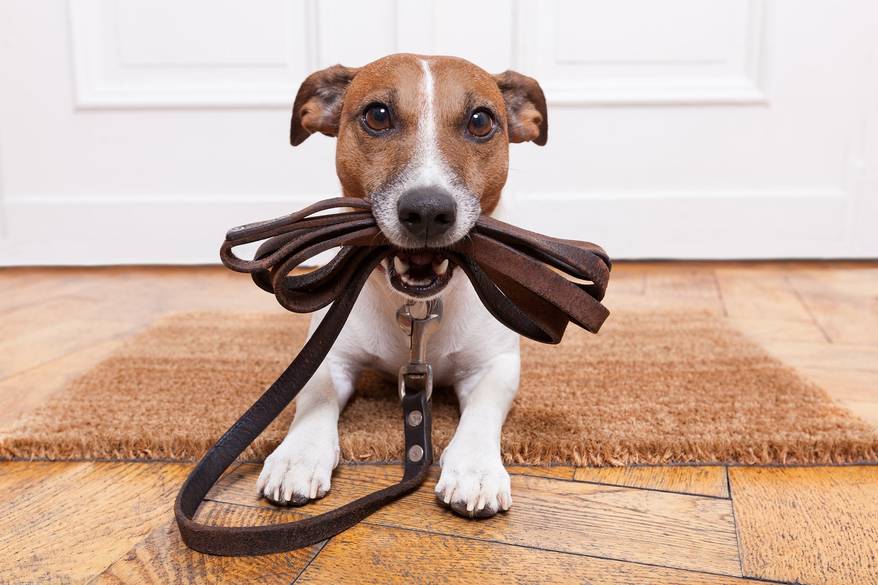
-
Find the right food for your petTake this quiz to see which food may be the best for your furry friend.Find the right food for your petTake this quiz to see which food may be the best for your furry friend.Featured products
 Puppy Sensitive Stomach & Skin Salmon & Brown Rice Recipe
Puppy Sensitive Stomach & Skin Salmon & Brown Rice RecipeDelicious, highly digestible recipe, gentle on stomachs. Nourishes skin & promotes a lustrous coat
Shop Now Adult Chicken & Barley Recipe Dog Food
Adult Chicken & Barley Recipe Dog FoodSupports lean muscle and beautiful coat for adult dogs
Shop Now Puppy Large Breed Chicken & Brown Rice Recipe
Puppy Large Breed Chicken & Brown Rice RecipeVital nutrients to support 5 essential building blocks for lifelong health
Shop NowFeatured products Adult Urinary Hairball Control Chicken & Rice Recipe Cat Food
Adult Urinary Hairball Control Chicken & Rice Recipe Cat FoodActively supports the health of the whole urinary system
Shop Now Adult 7+ Chicken Recipe Cat Food
Adult 7+ Chicken Recipe Cat FoodSupports energy level and beautiful fur in mature cats
Shop Now Kitten Chicken Recipe
Kitten Chicken RecipeVital nutrients to support 5 essential building blocks for lifelong health
Shop Now -
Dog
- Dog Tips & Articles
-
Health Category
- Weight
- Food & Environmental Sensitivities
- Urinary
- Digestive
- Joint
- Kidney
-
Life Stage
- Puppy Nutrition
- Adult Nutrition
- Senior Nutrition
Cat- Cat Tips & Articles
-
Health Category
- Weight
- Skin & Food Sensitivities
- Urinary
- Digestive
- Kidney
-
Life Stage
- Kitten Nutrition
- Adult Nutrition
Featured articles Pet Food Storage Tips
Pet Food Storage TipsDiscover how and where to store your dry, as well as canned, dog and cat food. Learn how to find the "best before" dates on all Hill's pet food packaging.
Read More Water
WaterDiscover why water is the most important nutrient for your dog or cat to live a healthy life. Find out how much water your pet should consume each day.
Read More The Incredible Science Behind Your Pet's Microbiome
The Incredible Science Behind Your Pet's MicrobiomeLearn what a pet's microbiome is, how it contributes to your pet's gut & overall health, and why nutrition is important in maintaining healthy microbiomes.
Read More -


How smart is your dog? If your pooch knows enough to keep from ruining the carpet and generally to keep out of trouble, you might think he's as smart as he needs to be, and haven't thought of giving him a dog IQ test. A dog intelligence test can give you an idea about his trainability and problem solving skills. Keep reading for the scoop on dog intelligence, and how you can administer an IQ test to your pup.
The Science of Dog Intelligence
While your dog's IQ will make no difference to how much you love him, for those looking to adopt a new pooch, dog intelligence test scores can help to indicate traits of temperament and trainability. This can not only help prospective dog owners select a dog that's a good fit, but also give them an idea of what to expect from their new dog.
However, it's important to keep in mind that when it comes to the parent/pet relationship, dog intelligence is highly subjective, says Today. While your dog might not excel at the reasoning and problem-solving skills indicative of a high IQ, he might possess other talents that nevertheless convince you he's a genius. Additionally, obedience is not necessarily a sign of intelligence.
On the other hand, some scientists think that studying dog intelligence can help provide insight into human intelligence. A group of British researchers are working to devise a reliable dog IQ test that they hope will make it easier to study the link between intelligence and health, says Scientific American. While dog intelligence seems to be mapped similarly to that of humans, dogs don't engage in any lifestyle activities that might hamper their IQ scores, like humans sometimes do. By testing the IQ of a large number of border collies that all came from similar farming backgrounds, the study determined that even within breeds, the intelligence of individual dogs can widely vary. Researchers hope that by developing an accurate dog intelligence test, they'll be able to study the link between IQ and overall health and life expectancy without any of the variables that hinder similar studies with human subjects.
Different Types of Dog Intelligence
Dog intelligence comes in two basic varieties, says Today. There is "instinctive" intelligence, which is the type of intelligence and natural ability that is inherent to a breed or type of dog. This is the type of intelligence that makes terriers generally good at hunting small animals, bloodhounds good at finding things via scent, and border collies excellent at herding sheep.
The other type is "adoptive" intelligence, which is a dog's ability to learn. This category includes learning to perform certain tasks, socialization, and language comprehension. A dog may be stronger in one category of intelligence than the other. But just as a human who can rock a Mozart concerto on the piano is no better or worse than someone who can calculate the square root of pi without a calculator, a dog that is stronger in adoptive intelligence is no better or worse than one that shows more strength in the instinctive intelligence category. So, when conducting an IQ test on your dog, keep in mind that he may have natural talents and skills that the test doesn't take into account.


Tasty Tips
Dog IQ Test

Below are some tasks that you can do with your dog to test his IQ. These tasks are designed to evaluate a dog's ability to learn and retain information as well as his capacity for reasoning and problem solving. A scoring system is also provided so you can determine where your pooch falls on the dog IQ scale.
Task One: Place a large towel or blanket over your dog's head. This task will provide insight into your dog's ability to solve problems.
Scoring: Give your dog three points if he figures out how to free himself in under fifteen seconds, two points if it takes fifteen to thirty seconds, and one point if it takes more than thirty seconds.
Task Two: Place two or three empty buckets or cups upside down in a row. While your pup watches, place a treat under one of the containers. Distract him for a few seconds before allowing him to look for the treat. This test will help determine how well your dog can learn and retain information.
Scoring: Give him three points if he goes straight to the container hiding the treat, two if he checks one empty container before finding the right one, and one point if he checks both wrong containers before locating the treat.
Task Three: In a room where your pup has a favorite spot to lounge, send him out of the room and then rearrange the furniture. This task is designed to test his reasoning and cognition.
Scoring: Let your dog back into the room. If he goes right to his favorite spot, give him three points. Give him two points if he takes a short time to investigate before finding his spot. If he gives up and picks a new spot, give him one point.
Task Four: Underneath a piece of furniture (low enough to the ground that only your dog's paw will fit), place a treat within paw's reach. This task will test your dog's reasoning and problem-solving skills.
Scoring: Give your pooch three points if it takes him under a minute to reach for the treat using only his paw. If he tries to fit his head into the space first, or uses both his nose and paws, give him two points, and one point if he gives up entirely.
Task Five: At a time when you don't normally take your dog for a walk, pick up his leash while he's watching. This task tests your dog's ability to make and retain associations.
Scoring: Give your dog three points if he immediately gets the hint and becomes excited; two points if you need to walk to the door before he gets the message that it's time to go somewhere; and one point if he doesn't seem to understand what's going on.
Task Six: This one takes a little extra work on your part. With a piece of cardboard five feet wide and too tall for your dog to see over when standing on his back legs, build a barrier by attaching each end of the cardboard to a box big enough to support it. In the center of the cardboard, cut a rectangle about three inches wide that starts about four inches from the top and ends about four inches from the bottom. Toss a treat behind the barrier, allowing your dog to watch where it falls through the window you cut into the cardboard. This task will help measure reasoning and problem-solving ability.
Scoring: Give your dog three points if he takes 30 seconds (or less) to figure out he needs to walk around the barrier to get the treat. If he takes longer than 30 seconds to figure it out, give him two points, and one point if he tries to climb through the window or bulldoze his way through the barrier instead of going around.
- More than 15 points: Congratulations! Your dog is a genius.
- 13–15 points: Your dog's not Einstein but he's still a smart cookie.
- 9–12 points: Your dog won't be the class valedictorian but he'll get by okay.
- 5–8 points: Your dog might need some assistance figuring things out and getting things done.
- 1–4 points: It doesn't take brains to give cuddles and kisses—that's all that really matters, right?
Dogs that do well on these types of tasks tend to be highly trainable and make great candidates for service dogs. But again, these tests aren't infallible. Some dogs are simply stubborn, and their lack of cooperation probably has nothing to do with their intelligence. Some also say the smartest dogs are the ones that wait patiently for their owners to fork over a treat that they don't have to work for. But even if your dog is not the sharpest tool in the shed, that does nothing to diminish the love and loyalty he has for you.


Jean Marie Bauhaus is a pet parent, pet blogger, and novelist from Tulsa, Oklahoma, where she usually writes under the supervision of a lapful of fur babies.
Related products

Supports lean muscle and beautiful coat for adult dogs

Vital nutrients to support 5 essential building blocks for lifelong health

Delicious, highly digestible recipe, gentle on stomachs. Nourishes skin & promotes a lustrous coat

Supports healthy joints, lean muscle, and beautiful coat for large breed dogs
Related articles

Large and giant breed puppies have different nutritional needs than other dogs. Learn how to provide the special care they need to grow up big and strong.

Understand the role that Omega-6 and Omega-3 fatty acids play in your dog's overall health, and how you can ensure they are getting enough.

Learn about Hill's puppy food and the nutritional benefit & high quality ingredients that it contains for your pup.

Proper nutrition for your pregnant or nursing dog is vital to her and her puppy's health. Learn what you should do provide her with the proper nutrients.

Put your dog on a diet without them knowing
Our low calorie formula helps you control your dog's weight. It's packed with high-quality protein for building lean muscles, and made with purposeful ingredients for a flavorful, nutritious meal. Clinically proven antioxidants, Vitamin C+E, help promote a healthy immune system.
Put your dog on a diet without them knowing
Our low calorie formula helps you control your dog's weight. It's packed with high-quality protein for building lean muscles, and made with purposeful ingredients for a flavorful, nutritious meal. Clinically proven antioxidants, Vitamin C+E, help promote a healthy immune system.

